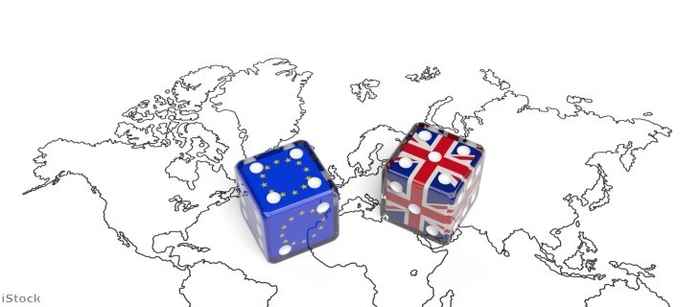
The study programme
The programme
Behavioural Economics and Game Theory is one of the tracks of the Master's Economics. During your Master's you will follow 3 general courses and 5 track-specific courses. You will finish with a thesis.
-
MacroeconomicsPeriod 15
In this course you will learn about modern macroeconomic models. You will learn how to use these models to explain and evaluate recent events and policy interventions. For example, the effect of uncertainty on savings, welfare and investment, the causes and nature of unemployment and inflation and the role of monetary and fiscal authorities.
-
Microeconomics and Game TheoryPeriod 15
In this course you will learn to understand the workings and limitations of the market. You will learn how to analyse consumer and producer behaviour and how to use basic game theory. The central question is: what can markets do and when do they fail? What determines the outcome, and how does that depend on market structure?
-
Applied EconometricsPeriod 1Period 25
In this course you will learn about regression analysis. In applied economics this is a powerful tool to analyse empirical relationships. You will learn how to interpret estimation and testing results and build a satisfactory empirical model. You will follow lectures and take part in lab sessions to acquire practical econometric skills by making computer exercises.
-
Advanced Game TheoryPeriod 25
In this analytically challenging course you will dive into the concept of strategic interdependent decision making. Study theoretical concepts and their applications like the oligopoly, auctions, bargaining, reputation and signalling.
-
Behavioural EconomicsPeriod 25
In this course you will learn to understand the psychological underpinnings of economics behaviour and of recent theories in behavioural economics. By critically reading and evaluating academic papers you will gain insight in individual choice and strategic interaction, especially social preferences and reciprocity.
-
Experimental EconomicsPeriod 35
In this course you will learn the basic methodology of experimental economics: how to design a simple experiment, including writing instructions. You will practice both with laboratory and field experimentation evolving around industrial organisation, labour economics, behavioural economics and individual and group decision making.
-
Evolution and BehaviourPeriod 45
How does evolution shape human behaviour in general and behaviour in economic situations in particular? To answer this question you will learn to understand the basic principles of evolutionary dynamics and evolutionary game theory.
-
Restricted-choice electivesPeriod 45
You can choose one of the following electives: Neuroeconomics or Human Development.
-
Research Seminar Behavioural Economics and Game TheoryPeriod 4Period 55
-
Master's Thesis Behavioural Economics and Game TheoryPeriod 5Period 615
The academic programme culminates in a thesis, which allows you to engage with state-of-the-art data analysis and statistical techniques. The Master’s thesis is the final requirement for your graduation. It is your chance to dive deep into a topic in your field of choice (track) that you are enthusiastic about, and allows you to do an independent research project. A professor of your track will supervise and support you in writing your thesis.
Do you want to know more about the courses?
The course catalogue provides detailed information for each course, including subjects, assessment methods and recommended literature.
Honours Programme
If you are a student of the Master's Economics and you have a record of academic excellence, a critical mind and an enthusiasm for applied research, then our Economics Honours programme is a great opportunity for you.

This Master's perfectly blends my 2 passions: economics and policy analysis. It's a challenging programme, that teaches you hard and soft skills.Anouk Roethof Read about Anouk's experiences with this Master's

Through a variety of exercises, I try to get people to think about the limits of knowledge in economics and about ideas for how to extend it, making the material come alive, and providing an excellent preparation for the master thesis.Joël van der Weele, coordinator of the Master’s track Behavioural Economics and Game Theory Read the full interview

One application is to understand the origins of current political polarisation. What drives people into opposing political camps? What dynamics drive antagonism between different groups, and how can they be overcome? For this, we need both behavioural insights on in-group biases, evolutionary theory on the role of group membership, and game-theoretic insights about strategic behaviour in groups. All these aspects will be elucidated in the courses in our track.
-
When do I need to select a specialisation track?
A specialisation track must be chosen when applying for the Master’s programme. However, track modifications are still possible until late October. The criteria for all tracks are identical and do not impact the likelihood of being accepted into the programme.
-
How many students are accepted into the programme?
Our Master’s programme admits around 25 students per specialisation track. If you meet the entry requirements, you will always be accepted; this Master’s does not have a numerus fixus.
-
What are the weekly contact hours?
Most courses have one 2-hour lecture and one 2-hour tutorial per week. Some courses also offer a Q&A or self-study clips. Generally, students take 3 courses at a time, so count on about 12-15 contact hours per week.
-
Will all lectures be held in person, or will there be options for online attendance?
Only the 3 courses (microeconomics & game theory, macroeconomics, and applied econometrics) at the beginning of the year use (online) clips. In addition to clips, these 3 courses offer weekly on-campus tutorials and Q&As. All other courses are fully taught on campus, so in person. Some courses even have mandatory participation, especially for tutorials.
-
Is attendance compulsory for lectures, tutorials, and other sessions?
Attendance usually is not compulsory for lectures, but commonly for tutorials and other sessions. Students greatly benefit from being present and engaging in discussions with both the instructor and their fellow classmates.
-
What is the typical method of assessment for most courses?
Most courses have a combination of a written on-site exam and additional assessment methods, including oral presentations, developing research proposals, conducting experiments, and writing up results. The written on-site exam often makes up most of the grade. Finally, some courses require attendance, which is reflected by presence and activity in tutorials and online assignments.